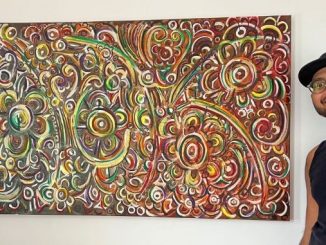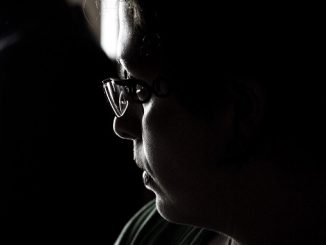Directed by Charles-Olivier Michaud, Ru is a beautiful, quiet, emotional journey. Adapted from the 2009 novel of the same name by Kim Thuy, Ru follows the coming-of-age story of Tinh, a young girl from Vietnam seeking refuge in Quebec with her family. Near the end of the Vietnam War, Tinh’s family is pushed out of the country due to her father’s ties to the Americanized capitalist government. Once a high-standing family with a gorgeous home and luxury lifestyle is suddenly experiencing some of the harshest quality of life imaginable trying to escape their home country.

This trauma is communicated through Tinh’s memories as they’re triggered by moments in her new life in Montreal. For most of the film, Tinh, portrayed by Chloé Djandji, is quiet. She deals with her pain privately and is reluctant to share and adapt out of fear. We, the audience, become acquainted with this girl’s trauma through these little glimpses, a child’s perspective of war, famine, death, etc.
Tinh remembers seeing a woman and her baby blown up from a landmine, her parents bickering in the barrel of the boat to Canada, where her father insists they take pills (suicide) in case pirates take over the ship; she remembers the constant flow of soldiers ransacking their house and her safe space being invaded. Her best friend – her cousin – did not leave with them, and that one person who understood her and her trauma, who she felt she could rely on, was gone. Yet, Tinh’s story in Montreal progresses, and she slowly opens up to this new world. Ru is an exemplary and intimate tale of acceptance.
Chloé Djandji is fabulous, and her parents, mother Nguyen, portrayed by Chantal Thuy and father Minh, performed by Jean Bui, provide an excellent framework for Chloe to emote her pain, confusion, and melancholy quietly.
While we watch Tinh and her journey unfold, we inevitably must see her parents’ struggles as they grow to accept and acclimate to this new society where, despite their rank in Vietnam, they must take up low-wage employment and buy what they need from a charity shop. Minh seems to take this in stride, trying to set a confident example for his teen daughter, whom he often takes to work with him. Nguyen has a larger emotional hurdle to overcome, going from a stay-at-home mom with a dressmaker to relying on her sewing skills to make ends meet in their need for a double income to afford their small apartment.
These two parents try to hide their pain and struggles, but Tinh can see it nonetheless. Despite the apparent turmoil of this family’s misfortune, there is an underlying rule to move forward and shove that pain aside. This unspoken hurt Tinh struggles to push down becomes an issue between her and her mother, who finds Tinh’s evident unhappiness a reminder of her own she tries to bury.
Ru slowly moves forward, and as Tinh makes friends, finds coping mechanisms, and processes her loss, the whole family can now smile together and appreciate their new life from a happier perspective.
Being a period drama based on Vietnamese history, a certain amount of noticeable sexism was appropriate for the time. Still interestingly enough, it was more prevalent in the representation of the Quebeqios family sponsoring Tinh. There is little racism aside from a horrible remark from a boy outside of school; for the most part, the struggle of these expats is internal. This emotionally burdened experience for TInh’s family creates a beautiful journey to follow in Ru.
I appreciated the visual representations of harsh Canadian winter through this film’s Vietnamese main characters’ perspective. The new relationship with snow. The audible squeaking of boots on packed snow and the chaffing of snow pants. There’s a keen attention to environmental details that flesh out the novelty of one’s first Canadian winter, the sounds and experiences a child notices with their senses heightened by the world changed by the elements.
Ru is an exceptional and beautiful film. I highly recommend audiences to devour this soulful piece directed by Charles-Olivier Michaud, based on the 2009 novel of the same name by Kim Thuy.




